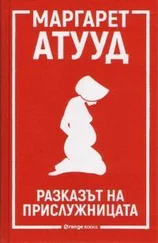People became frightened. Then they became angry.
The absence of viable remedies. The search for someone to blame.
Why did I think it would nonetheless be business as usual? Because we’d been hearing these things for so long, I suppose. You don’t believe the sky is falling until a chunk of it falls on you.
—
My arrest came shortly after the Sons of Jacob attack that liquidated Congress. Initially we were told it was Islamic terrorists: a National Emergency was declared, but we were told that we should carry on as usual, that the Constitution would shortly be reinstated, and that the state of emergency would soon be over. That was correct, but not in the way we’d assumed.
It was a viciously hot day. The courts had been closed—temporarily, until a valid line of command and the rule of law could be reinstituted, we were told. Despite that, some of us had gone into work—the freed-up time could always be used to tackle the document backlog, or that was my excuse. Really I wanted company.
Oddly, none of our male colleagues had felt the same need. Perhaps they were finding solace among their wives and children.
As I was reading through some casework, one of my younger colleagues—Katie, recently appointed, thirty-six, and three months pregnant via sperm bank—came into my office. “We need to leave,” she said.
I stared at her. “What do you mean?” I said.
“We need to get out of the country. There’s something happening.”
“Well, of course—the state of emergency—”
“No, more than that. My bank card’s been cancelled. My credit cards—both of them. I was trying to get a plane ticket, that’s how I know. Is your car here?”
“What?” I said. “Why? They can’t simply cut off your money!”
“It seems they can,” said Katie. “If you’re a woman. That’s what the airline said. The provisional government has just passed new laws: women’s money now belongs to the male next of kin.”
“It’s worse than you think,” said Anita, a somewhat older colleague. She’d come into my office too. “Way worse.”
“I don’t have a male next of kin,” I said. I felt stunned. “This is completely unconstitutional!”
“Forget the Constitution,” said Anita. “They’ve just abolished it. I heard about that in the bank, when I tried to…” She began crying.
“Pull yourself together,” I said. “We need to think.”
“You’ll have a male relative somewhere,” said Katie. “They must have been planning this for years: they told me that my male next of kin is my twelve-year-old nephew.”
At that moment the main door was kicked in. Five men entered, two by two and then one on his own, submachine guns at the ready. Katie, Anita, and I came out of my office. The general receptionist, Tessa, screamed and ducked down behind her desk.
A couple of them were young—twenties, perhaps—but the other three were middle-aged. The younger ones were fit, the others had beer bellies. They were wearing camouflage gear direct from central casting, and if it hadn’t been for the guns I might have laughed, not yet realizing that female laughter would soon be in short supply.
“What’s this about?” I said. “You could have knocked! The door was open!”
The men ignored me. One of them—the leader, I suppose—said to his companion, “Got the list?”
I tried a more outraged tone. “Who is responsible for this damage?” Shock was beginning to hit me: I felt cold. Was this a robbery? A hostage-taking? “What do you want? We don’t keep any money here.”
Anita nudged me with her elbow to get me to keep quiet: she already had a better grasp of the situation than I did.
The second-in-command held up a sheet of paper. “Who’s the pregnant one?” he said. The three of us looked at one another. Katie stepped forward. “I am,” she said.
“No husband, right?”
“No, I…” Katie was holding her hands protectively in front of her stomach. She’d chosen single motherhood, as many women did in those days.
“The high school,” the leader said. The two younger men stepped forward.
“Come with us, ma’am,” said the first.
“Why?” said Katie. “You can’t just barge in here and—”
“Come with us,” said the second younger man. They grabbed her by her arms, hauled. She screamed, but out she went through the door nonetheless.
“Stop that!” I said. We could hear her voice outside in the hall, diminishing.
“I’m giving the orders,” said the leader. He had eyeglasses and a handlebar moustache, but these did not render him avuncular. I’ve had cause to notice over the course of what you might call my Gilead career that underlings given sudden power frequently become the worst abusers of it.
“Don’t worry, she won’t be hurt,” said the second-in-command. “She’s going to a place of safety.”
He read our names off the list. There was no point in denying who we were: they already knew. “Where’s the receptionist?” said the leader. “This Tessa.”
Poor Tessa emerged from behind her desk. She was shivering with terror.
“What d’you think?” said the man with the list. “Box store, high school, or stadium?”
“How old are you?” said the leader. “Never mind, it’s here. Twenty-seven.”
“Let’s give her a chance. Box store. Maybe some guy might marry her.”
“Stand over there,” said the leader to Tessa.
“Christ, she’s wet herself,” said the third older man.
“Don’t swear,” said the leader. “Good. A fearful one, maybe she’ll do as she’s told.”
“Fat chance any of them will,” said the third man. “They’re women.” I think he was making a joke.
The two young men who had disappeared with Katie now came back through the door. “She’s in the van,” said one.
“Where’s the other two so-called lady judges?” said the leader. “This Loretta? This Davida?”
“They’re on lunch,” said Anita.
“We’ll take these two. Wait here with her until they come back,” said the leader, indicating Tessa. “Then lock her in the box-store van. Then bring the two lunch ones.”
“Box store or stadium? For these two here?”
“Stadium,” said the leader. “One of them’s overage, they’ve both got law degrees, they’re lady judges. You heard the orders.”
“It’s a waste though, in some cases,” said the second one, nodding towards Anita.
“Providence will decide,” said the leader.
Anita and I were taken down the stairs, five flights. Was the elevator running? I don’t know. Then we were cuffed with our hands in front of us and inserted into a black van, with a solid panel between us and the driver and mesh inside the darkened glass windows.
The two of us had been mute all this time, because what was there to say? It was clear that cries for help would go unanswered. There was no point in shouting or flinging ourselves against the walls of the van: it would simply have been a futile expense of energy. And so we waited.
At least there was air conditioning. And seats to sit down on.
“What will they do?” Anita whispered. We couldn’t see out the windows. Nor could we see each other, except as dim shapes.
“I don’t know,” I said.
—
The van paused—at a checkpoint, I suppose—then moved, then halted. “Final stop,” said a voice. “Out!”
The back doors of the van were opened. Anita clambered out first. “Move it,” said a different voice. It was hard to get down from the van with my hands cuffed; someone took my arm and pulled, and I lurched onto the ground.
As the van pulled away, I stood unsteadily and gazed around. I was in an open space in which there were many groups of other people—other women, I should say—and a large number of men with guns.
Читать дальше









![Маргарет Этвуд - Лакомый кусочек [litres]](/books/384342/margaret-etvud-lakomyj-kusochek-litres-thumb.webp)
![Маргарет Этвуд - Избранные произведения в одном томе [Компиляция]](/books/389748/margaret-etvud-izbrannye-proizvedeniya-v-odnom-tome-thumb.webp)

